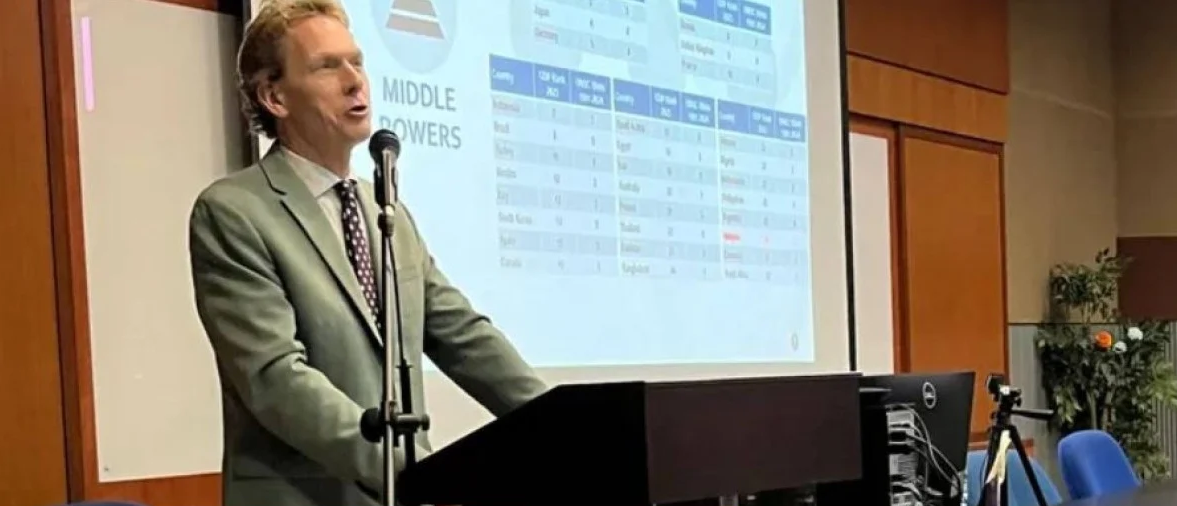Comments made by a visiting academic were amplified by social media, quickly becoming the latest episode to trend among Malaysia’s netizens.
An American professor raging about Malaysia is just the latest in a long line of negative media coverage this country has received internationally.
For those of us in a company that endeavours to paint a positive view of Malaysia and promote it as an attractive place to live and work, it is discouraging to repeatedly see stories in the international media reporting events which, for most readers, paints a less than flattering image of the country. For those who do not know Malaysia, these reports can shape their overall view of this nation.
Some of the comments and actions reported are a genuine embarrassment and do not reflect well on the country. We frequently wish they had not been said or allowed to happen, but we have no control over them. Very often they are not a true representation of the country. While there are extremist elements here, just as there are in most countries, Malaysians are generally friendly and welcoming. The vast majority of expats say that they enjoy living here.
The latest event arose because the University of Malaya (UM), one of the country’s leading universities, invited speakers from overseas to visit and address their students. This is common in most top academic institutions. This political science professor, Bruce Gilley, is from Portland State University. Western universities have a long tradition of being centres of thinking “outside the box” and challenging prevailing norms, so controversial lectures and addresses are not altogether uncommon in these universities. However, Malaysia is not such a country, and it’s safe to say that lectures of a potentially inflammatory nature don’t play as well here.
During one of his lectures, Professor Gilley made a few comments which were critical of Malaysia’s overtly pro-Palestine leanings and its decidedly anti-Jewish stance. While these observations are not inaccurate, the way in which the comments were delivered clearly left something to be desired. He stated that “a country which advocates a second holocaust against the Jewish people will never be a serious player in world affairs and will certainly never be a friend or partner of the United States.”
The Minister of Higher Education criticized UM for hosting a pro-Israeli speaker and inviting him to the country, saying universities should do a better job of vetting potential speakers. The university did cancel all their scheduled activities with him and Gilley returned to the States, while refusing reimbursement for his travel expenses.
After leaving, he posted on social media that he had safely departed Malaysia “one step ahead of an Islamo-fascist mob whipped up by the Malaysian government.” He went on to say that Malaysia is not a safe country to travel to, which is plainly inaccurate and not reflected in any government travel advisories about visiting Malaysia. In fact, the official U.S. travel advisory for Malaysia is at level one, the lowest of four, saying only to “exercise normal precautions” when travelling in the country.
Professor Gilley later deleted his offending post and expressed regret for causing any harm to his UM colleagues.
It is also important to recognise that his comments were merely his own opinions, as he also later clarified. He is a private citizen, nothing more, and his statement in no way represents any official position of the United States or even necessarily views shared by other American citizens. It was simply his own opinion, delivered with an unfortunate excess of emotion, and amplified by the untamed power of social media.
It would appear that the professor perhaps did not fully research Malaysia and better understand its political climate before traveling here. The fact is that the Prime Minister and Malaysia, together with many others in the world – including leaders in the U.S. government – are increasingly opposed to Israel’s current conduct in Gaza and the enormous loss of life among innocent people. Many leaders around the world, and in America’s government, have called for a cease-fire. Even many Israeli citizens do not support the actions of their country’s leaders.
For its own part, Malaysia has never been a friend of Israel and in fact does not even recognise its existence. They have no diplomatic relations, and Malaysians are not permitted to travel there. Israelis can only visit here with a visa, but would probably find it hard to get approval for an MM2H visa, although few would likely want to relocate here anyway.
As for Professor Gilley’s comments, the whole episode (which has already been picked up by some international media outlets) will again probably add to the country’s negative image in the minds of some people, but to others, his emotional statements hardly add to his credibility.
Malaysia is a relatively safe place to live, and the citizens are nearly always friendly. There are certainly some extremist elements in this country, but they are in the minority. When they gather in larger groups, it’s usually because some politician inflamed them.
Given the fact that all media likes an eye-catching story, Malaysia will continue to have negative coverage. Recent episodes, like the Swatch watch seizures, multiple concert fiascos, the long-running stories about KK Mart and the socks, and even an uproar over a pair of shoes and their logo have all led to unflattering stories about Malaysia being carried in international media outlets.
The objective, in our mind, is to have more positive stories than negative. Our concern is greatest when the negative stories are wholly avoidable, like those surrounding the long delays in sorting out the MM2H visa programme. The many delays and confusing announcements, all essentially self-inflicted wounds, only serve to make more people speak negatively about the country, thus giving them pause when they consider whether to visit or invest in Malaysia.
"ExpatGo welcomes and encourages comments, input, and divergent opinions. However, we kindly request that you use suitable language in your comments, and refrain from any sort of personal attack, hate speech, or disparaging rhetoric. Comments not in line with this are subject to removal from the site. "





















